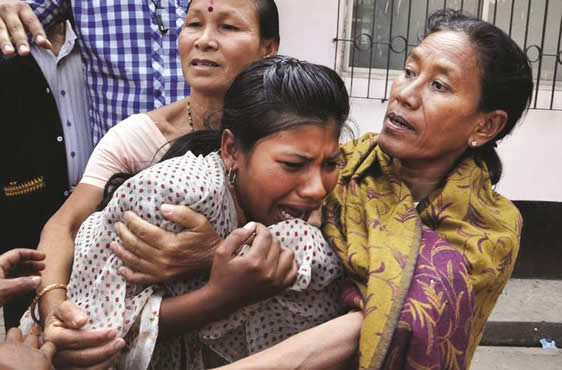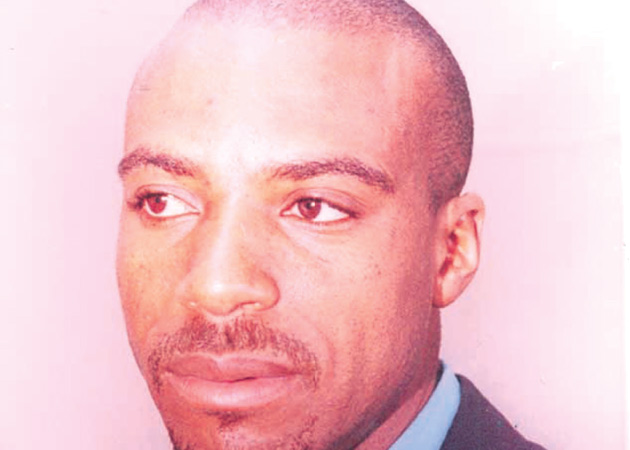Sri Lanka slams UN rights chief for ‘interference’


An Indian relative of activist Pranab Boro, who died after self-immolating during a protest, mourns in Guwahati yesterday. Boro, an activist from the Krisak Mukti Sangram Samiti self-immolated during a protest demanding land rights for local people in various regions of India’s eastern Assam state and died after hospitalisation with burns covering over 90 percent of his body. Krishak Mukti Sangram Samiti, a peasant organisation based in Assam, works on a diverse range of issues, including corruption, land rights and employment. — AFP.
COLOMBO. — Sri Lanka yesterday accused the UN rights chief of “unwarranted interference” by calling for an international inquiry into allegations troops killed thousands of civilians at the end of the civil war. The government of President Mahinda Rajapakse formally rejected the demand by rights chief Navi Pillay for an external investigation into what she had called “credible allegations” that 40 000 ethnic Tamil civilians were killed by Sri Lankan forces in 2009.
Pillay’s recommendation to a UN Human Rights Council (UNHRC) meeting in Geneva next month “reflects bias and is tantamount to an unwarranted interference in the internal affairs of a sovereign state”, Colombo said in a statement.
The United States has already said it will move a third censure motion against Sri Lanka at the UNHRC, buttressing the recommendations of Pillay who visited Sri Lanka on a week-long fact-finding mission last August.
Shortly before leaving, she launched a scathing attack on Sri Lanka’s failure to honour promises to ensure accountability and accused the Rajapakse regime of becoming “increasingly authoritarian”.
In her latest report, Pillay said the UNHRC could not have any faith in Sri Lanka to deliver justice internally and local courts had been “compromised by politicisation and interference by the executive”.
In the UN document leaked 10 days ago but published officially on Monday, Pillay asked the UNHRC to set up an independent probe and said Colombo had “consistently failed to establish the truth”.
She also recommended Sri Lanka repeal its draconian anti-terror legislation, demilitarise the former war zone and “arrest, prosecute and punish perpetrators of attacks on minority communities, media and human rights defenders”.
Pillay’s report noted fresh evidence of what took place during the final stages of the ethnic war that ended in May 2009 when an army onslaught crushed the Liberation Tigers of Tamil Eelam separatist guerrillas.
The UN has said up to 40 000 Tamil civilians may have been killed during the final months of fighting and blamed many of the deaths on government forces, a charge Colombo vehemently denies. — AFP.







Comments